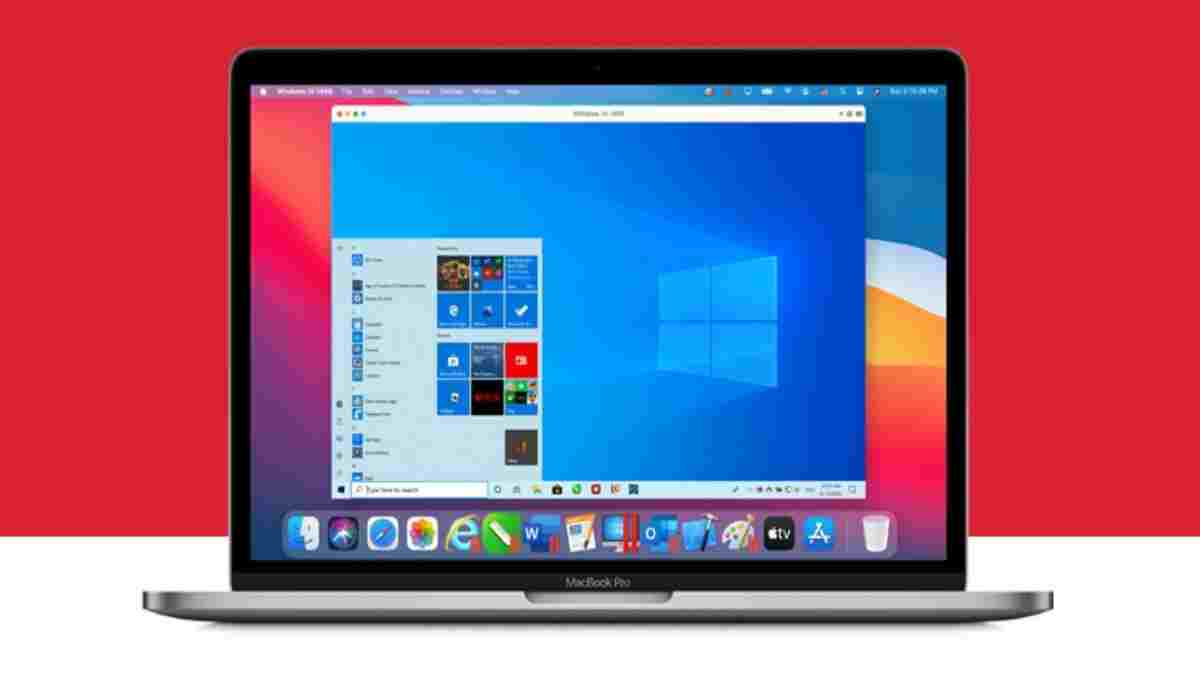Parallels Desktop 16.5 for Mac Supports Both M1 and Intel Chips

Parallels, a global leader in cross-platform solutions, on Wednesday released Parallels Desktop 16.5 for Mac, which features full native support for Mac computers equipped with either Apple M1 or Intel chips.
In other words, the virtualization software will allow users to run Windows 10 ARM Insider Preview and its apps on Macs with an Apple M1 processor.
The M1 chip’s superior performance delivers the world’s fastest integrated graphics in a personal computer, revolutionary power efficiency, and was designed to work with macOS Big Sur3—which Parallels Desktop 16.5 transforms into a new standard for a seamless Windows-on-Mac experience.
It also delivers M1 support for the most popular ARM-based Linux distributions.
The virtualization approach for Parallels Desktop 16.5 for Mac enables users to benefit from Apple’s M1 chip performance advancements—applications run faster and more efficiently. Some of the highlights about the performance of Apple M1 and Parallels Desktop 16.5 for Mac are given below:
Up to 250 percent less energy used: On a Mac with an Apple M1 chip, Parallels Desktop 16.5 uses 2.5 times less energy than on a 2020 Intel-based MacBook Air computer.
Up to 60 percent better DirectX 11 performance: Parallels Desktop 16.5 running on an M1 Mac delivers up to 60 percent better DirectX 11 performance than on an Intel-based MacBook Pro with Radeon Pro 555X GPU.
Up to 30 percent better virtual machine performance (Windows): Running a virtual machine (VM) of Windows 10 on ARM Insider Preview on Parallels Desktop 16.5 on an M1 Mac performs up to 30 percent better than a Windows 10 VM running on Intel-based MacBook Pro with Intel Core i9 processor.
“Apple’s M1 chip is a significant breakthrough for Mac users. The transition has been smooth for most Mac applications, thanks to Rosetta technology. However, virtual machines are an exception and thus Parallels engineers implemented native virtualization support for the Mac with M1 chip. This enables our users to enjoy the best Windows-on-Mac experience available,” said Nick Dobrovolskiy, Parallels Senior Vice President of Engineering and Support in a press release.
Besides Windows 10 on ARM support, Parallels Desktop 16.5 for Mac also supports Linux distros like Ubuntu 20.04, Kali Linux 2021.1, Debian 10.7, and Fedora Workstation 33-1.2. Also,
More than 100,000 M1 Mac users who tested the Technical Preview of Parallels Desktop 16.5 for M1 Mac and ran Microsoft’s Windows 10 on ARM Insider Preview have provided enthusiastic feedback about both, added Dobrovolskiy.
All editions of Parallels Desktop 16.5 update for Mac support both M1 and Intel Mac computers (Standard Edition, Pro Edition and Business Edition). They can be purchased either online at parallels.com/desktop (which also offers free full-featured 14-day trials) or from retail and online stores around the world.
Parallels Desktop subscriptions also include complimentary concurrent subscriptions to Parallels Access, and just-redesigned and simplified Parallels Toolbox for Mac and Windows, which are separately available for free trials and subscriptions at parallels.com.
Additionally, anyone with a Parallels Desktop 16 for Mac license can get an automatic update to Parallels Desktop 16.5 at no additional cost.
Currently, Microsoft does not offer an ARM-based retail version of Windows yet. However, the software maker does provide a Windows 10 on ARM preview build, which is available on the Microsoft website for members of the Windows Insider program.
Parallels Desktop 16.5 for Mac costs $79.99 for a new subscription and $99.99 for a new perpetual license. Similarly, an upgrade from Parallels Desktop 14 or 15 to a perpetual license costs $49.99. For more information, you can read at Parallels.
The post Parallels Desktop 16.5 for Mac Supports Both M1 and Intel Chips appeared first on TechWorm.




